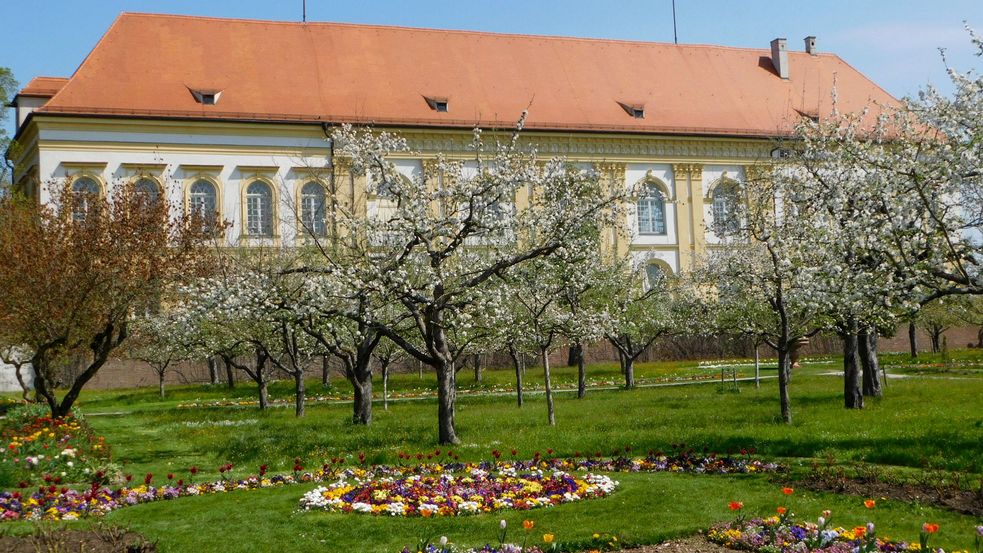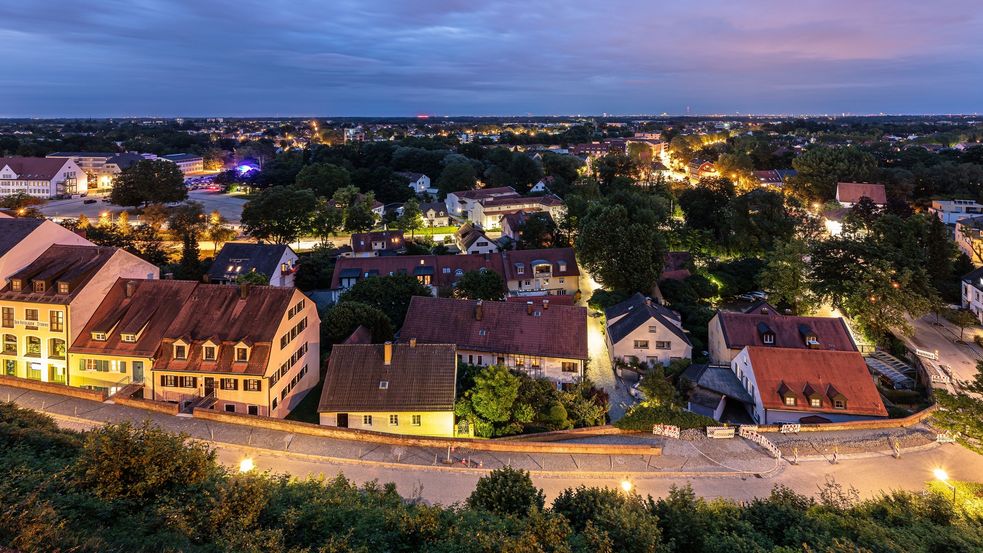The fortress of the dukes was destroyed in 1398 and 1403 and was replaced in the years 1546 - 1577 by a four-winged Renaissance palace with a court garden on the 504 m high castle hill. An original commemorative stone in the vestibule still bears the name of the builders: Duke Wilhelm IV and his son Duke Albrecht V.
The palace became the preferred country residence of the Munich court. Prince Elector Max Emanuel, who was especially fond of Dachau, ordered Joseph Effner to remodel the southwest wing in the baroque style from 1715 to 1717.

With no money for repairs, Max Joseph, the first king of Bavaria, decided to tear down three severely damaged wings of the castle in the early 19th century. At times even used as a storage facility, only the southwest wing remained, including the former ballroom. The famous wooden Renaissance ceiling by the carver Hans Wisreutter survived demolition, as did the grisaille painting by Hans Thonauer.
The Renaissance ceiling was transferred in 1868, however, to the Bavarian National Museum and was only brought back to its original location in 1977.
The palace has been used for exhibitions of the Dachau Artists' Association since 1908. Today, it hosts concerts of international acclaim.
The court garden offers a breathtaking panoramic view of Munich all the way to the Alps.



